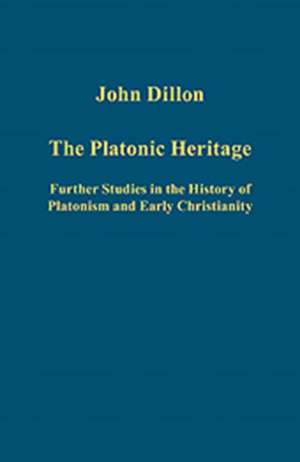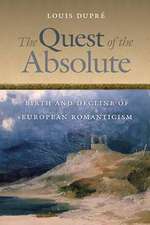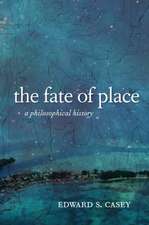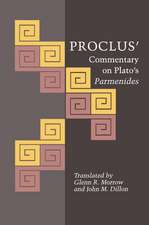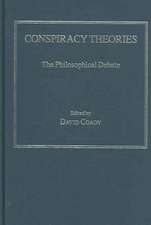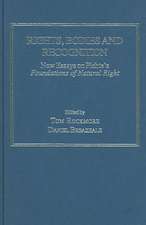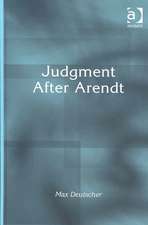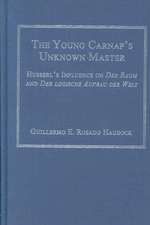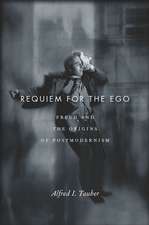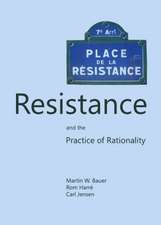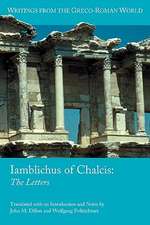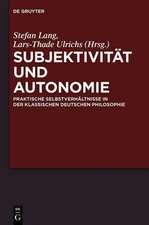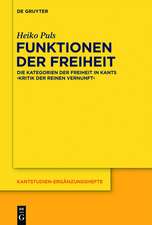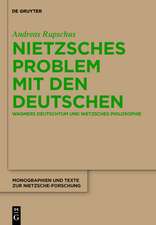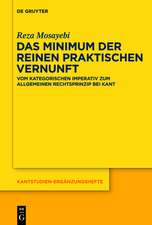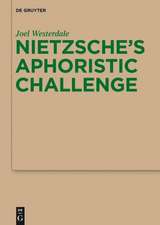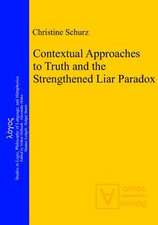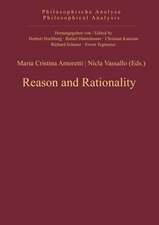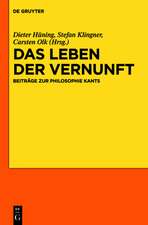The Platonic Heritage: Further Studies in the History of Platonism and Early Christianity: Variorum Collected Studies
Autor John Dillonen Limba Engleză Hardback – 28 mai 2012
| Toate formatele și edițiile | Preț | Express |
|---|---|---|
| Paperback (1) | 334.50 lei 6-8 săpt. | |
| Taylor & Francis – 22 mai 2017 | 334.50 lei 6-8 săpt. | |
| Hardback (1) | 1047.06 lei 6-8 săpt. | |
| Taylor & Francis – 28 mai 2012 | 1047.06 lei 6-8 săpt. |
Din seria Variorum Collected Studies
-
 Preț: 343.33 lei
Preț: 343.33 lei -
 Preț: 313.38 lei
Preț: 313.38 lei - 9%
 Preț: 1041.23 lei
Preț: 1041.23 lei -
 Preț: 311.41 lei
Preț: 311.41 lei -
 Preț: 386.77 lei
Preț: 386.77 lei - 9%
 Preț: 938.85 lei
Preț: 938.85 lei -
 Preț: 299.55 lei
Preț: 299.55 lei -
 Preț: 386.77 lei
Preț: 386.77 lei -
 Preț: 310.22 lei
Preț: 310.22 lei -
 Preț: 258.66 lei
Preț: 258.66 lei - 18%
 Preț: 949.32 lei
Preț: 949.32 lei - 9%
 Preț: 938.44 lei
Preț: 938.44 lei -
 Preț: 312.75 lei
Preț: 312.75 lei -
 Preț: 351.48 lei
Preț: 351.48 lei -
 Preț: 310.55 lei
Preț: 310.55 lei -
 Preț: 311.18 lei
Preț: 311.18 lei - 9%
 Preț: 936.60 lei
Preț: 936.60 lei -
 Preț: 341.55 lei
Preț: 341.55 lei -
 Preț: 320.00 lei
Preț: 320.00 lei - 34%
 Preț: 764.20 lei
Preț: 764.20 lei - 22%
 Preț: 312.43 lei
Preț: 312.43 lei - 34%
 Preț: 739.65 lei
Preț: 739.65 lei - 34%
 Preț: 764.20 lei
Preț: 764.20 lei - 34%
 Preț: 680.73 lei
Preț: 680.73 lei - 26%
 Preț: 247.40 lei
Preț: 247.40 lei - 34%
 Preț: 485.78 lei
Preț: 485.78 lei - 34%
 Preț: 769.51 lei
Preț: 769.51 lei - 34%
 Preț: 764.20 lei
Preț: 764.20 lei - 34%
 Preț: 826.68 lei
Preț: 826.68 lei - 25%
 Preț: 222.32 lei
Preț: 222.32 lei - 25%
 Preț: 225.54 lei
Preț: 225.54 lei - 34%
 Preț: 764.20 lei
Preț: 764.20 lei - 34%
 Preț: 736.38 lei
Preț: 736.38 lei - 34%
 Preț: 738.42 lei
Preț: 738.42 lei - 25%
 Preț: 226.52 lei
Preț: 226.52 lei - 33%
 Preț: 491.66 lei
Preț: 491.66 lei - 34%
 Preț: 485.78 lei
Preț: 485.78 lei - 34%
 Preț: 485.78 lei
Preț: 485.78 lei - 34%
 Preț: 767.07 lei
Preț: 767.07 lei - 34%
 Preț: 764.20 lei
Preț: 764.20 lei - 34%
 Preț: 764.20 lei
Preț: 764.20 lei - 34%
 Preț: 736.38 lei
Preț: 736.38 lei - 31%
 Preț: 473.94 lei
Preț: 473.94 lei - 18%
 Preț: 807.71 lei
Preț: 807.71 lei - 34%
 Preț: 764.20 lei
Preț: 764.20 lei - 34%
 Preț: 764.20 lei
Preț: 764.20 lei - 34%
 Preț: 764.20 lei
Preț: 764.20 lei - 51%
 Preț: 485.78 lei
Preț: 485.78 lei - 34%
 Preț: 485.78 lei
Preț: 485.78 lei - 34%
 Preț: 766.65 lei
Preț: 766.65 lei
Preț: 1047.06 lei
Preț vechi: 1581.13 lei
-34% Nou
Puncte Express: 1571
Preț estimativ în valută:
200.50€ • 206.59$ • 168.25£
200.50€ • 206.59$ • 168.25£
Carte tipărită la comandă
Livrare economică 22 februarie-08 martie
Preluare comenzi: 021 569.72.76
Specificații
ISBN-13: 9781409446620
ISBN-10: 140944662X
Pagini: 336
Dimensiuni: 150 x 224 x 27 mm
Greutate: 0.7 kg
Ediția:New.
Editura: Taylor & Francis
Colecția Routledge
Seria Variorum Collected Studies
Locul publicării:Oxford, United Kingdom
ISBN-10: 140944662X
Pagini: 336
Dimensiuni: 150 x 224 x 27 mm
Greutate: 0.7 kg
Ediția:New.
Editura: Taylor & Francis
Colecția Routledge
Seria Variorum Collected Studies
Locul publicării:Oxford, United Kingdom
Cuprins
Contents: The riddle of the Timaeus: is Plato sowing clues?; Plotinus, Speusippus and the Platonic Parmenides; The Timaeus in the old Academy; Philip of Opus and the theology of Plato's Laws; Atomism in the old Academy; Theophrastus' critique of the old Academy in the Metaphysics; The pleasures and perils of soul-gardening; Asômatos: nuances of incorporeality in Philo; Thrasyllus and the Logos; Plutarch's debt to Xenocrates; Plutarch and the inseparable intellect; Plutarch and God: theodicy and cosmogony in the thought of Plutarch; Plutarch's use of unidentified quotations; The social role of the philosopher in Athens in the 2nd century CE: some remarks; Pedantry and pedestrianism? Some reflections on the middle Platonic commentary tradition; Monotheism in the Gnostic tradition; An unknown Platonist on God; Holy and not so holy: on the interpretation of late antique biography; Plotinus on whether the stars are causes; Iamblichus' Noera Theoria of Aristotle's Categories; Iamblichus' identifications of the subject-matters of the hypotheses; Iamblichus on the personal daemon; The theology of Julian's Hymn to King Helios; A case-study in commentary: the neoplatonic exegesis of the Prooimia od Plato's dialogues; Damascius on procession and return; 'The eye of the soul': the doctrine of the higher consciousness in the neoplatonic and sufic traditions; Indexes.
Notă biografică
John Dillon is Emeritus Professor of Greek at Trinity College, Dublin, Ireland
Recenzii
'Dillon, long-time professor at Trinity College Dublin, has been a leading authority on Platonism since the publication of his The Middle Platonists (1977). This volume ... reflects the depth derived from a life immersed in the study of this field. ... For all but those with access to the finest research libraries, this should be compelling, but even for many of those, having a decade of Dillon ready to hand will be worth the price.' Religious Studies Review
Descriere
In this third collection of articles by John Dillon, the subjects covered range from Plato himself and the Old Academy, through Philo and Middle Platonism, to the Neoplatonists and beyond. Individual topics include atomism in the Old Academy, Philo's concept of immateriality, Plutarch's and Julian's views on theology, and peculiar features of Iamblichus' exegeses of Plato and Aristotle, but also the broader questions of the social position of the philosopher in second century A.D. society, and the nature of ancient biography.
